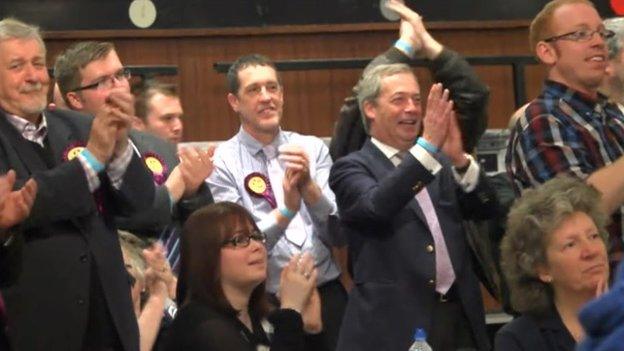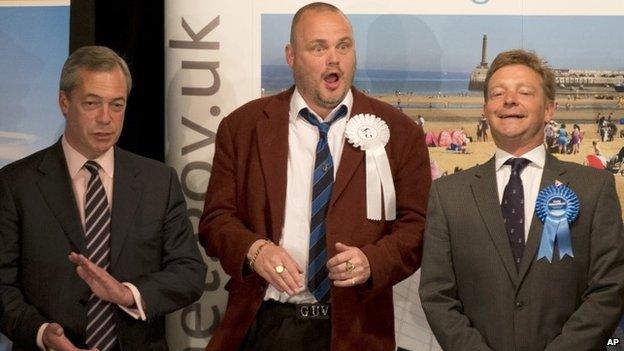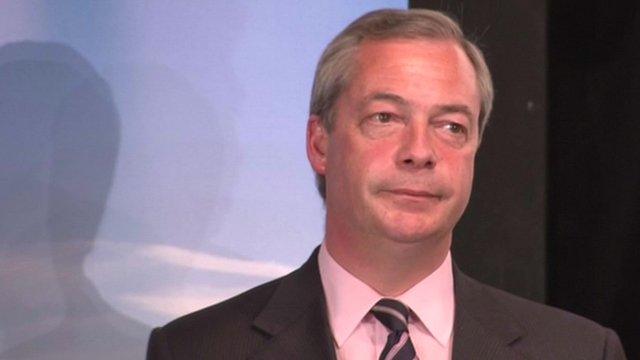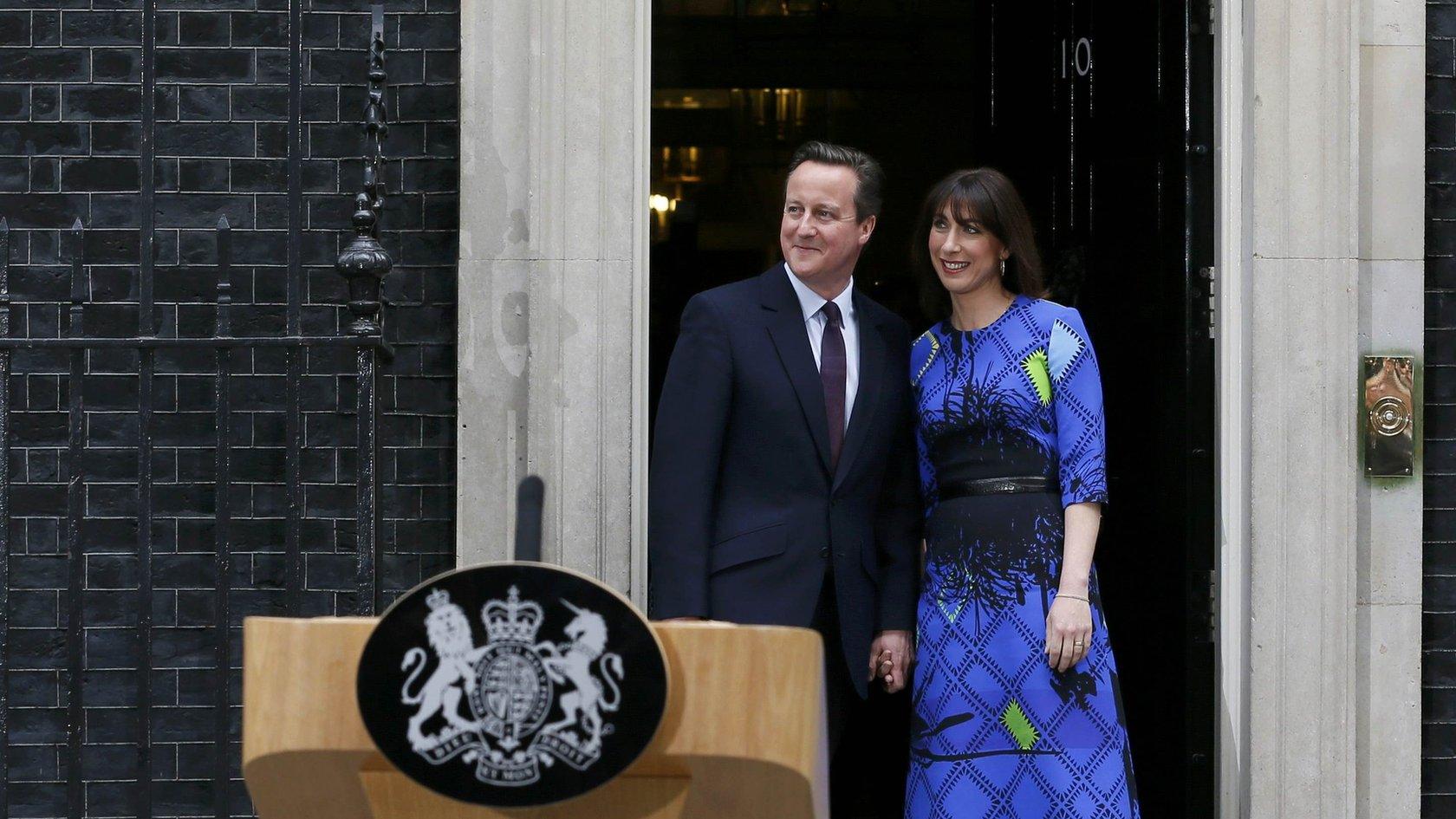Election 2015: UKIP controls Thanet Council
- Published

Former UKIP leader Nigel Farage said people had voted with their hearts
UKIP has won control of its first district council, Thanet in Kent - the area where the party's former leader, Nigel Farage, failed to become an MP.
UKIP won 33 seats, Conservatives 18, Labour four, and independents one - 29 seats were needed for a majority.
The party tweeted: "Thanet District Council has #GonePurple. First Authority in the United Kingdom to have a #UKIP majority!"
Ex-party leader Nigel Farage said: "I am not in the least bit surprised."
Mr Farage resigned as UKIP leader after failing to gain the parliamentary seat of Thanet South, losing to Conservative candidate Craig Mackinlay.
UKIP won a 13% vote share in the General Election and one MP, Douglas Carswell, held his Clacton seat.
But speaking after the council result, Mr Farage claimed: "What you have seen here is people voting with their heart, people voting for what they wanted to vote in.
"What you didn't see in the General Election was the same thing. What you saw was fear of the SNP."
UKIP deputy leader Suzanne Evans has been nominated by Nigel Farage to take over running the party after his resignation.
After the council declaration, she tweeted: "Beyond delighted to hear #UKIP have taken control of Thanet Borough Council. Many congratulations to our new Council team."

Mr Farage and comedian Al Murray lost out to Conservative Craig Mackinlay in Thanet South
Labour lost 22 seats on the council and now holds just four.
Labour councillor Iris Johnston said: "They came out to vote UKIP because they felt [Nigel Farage] was a leader for them. On a personal level I have never had a problem with him but he never came to see me once when I was the leader and he has never brought a penny to Thanet."
The Conservatives were hoping to increase their share of the seats from 22 to gain control of the council. Instead they lost four.
Craig Mackinlay, Conservative MP for Thanet South said: "We have now got to hold their feet to the fire on a couple of their promises - that is: to support Manston and the local plan."
It was UKIP's commitment to reopen Manston Airport that helped to secure UKIP's victory at the council elections.
The airport closed in May 2014, seven months after being bought by Stagecoach Group co-founder Ann Gloag.
A majority stake was sold to Mr Cartner and Mr Musgrave for redevelopment several months later but the nature of the sale and the true ownership of the airport was called into question by a recent Commons Transport Select Committee.

Analysis: Louise Stewart, BBC South East Political Editor
Nigel Farage stood down as party leader, at least temporarily, as he had promised to do if he didn't win his seat - but in many ways it was not a bad night for UKIP.
They increased their share of the vote and were the second party in many seats to Labour, coming third overall.
Almost 4m people voted UKIP yet they got only one MP - in Clacton - while the 1.5m people who voted SNP welcomed 56 MPs.
UKIP also took control of their first council - Thanet District Council - where they now hold 33 seats, with the Tories on 18.
So why, when clearly many people in Thanet support UKIP, did Mr Farage fail to win the Westminster seat?
The Tories put a huge effort into winning that seat with big-hitters including George Osborne, Philip Hammond and Boris Johnson all visiting. In the last days of the campaign, the prime minister promised to take every measure to save Manston airport.
The Tories took no chances when it came to South Thanet, and their decapitation strategy worked.

Thanet District Council's recent past
December 2014 - Thanet councillors controversially voted against pursuing the compulsory purchase of Manston Airport
December 2014 - Almost half the council walked out of a meeting about Manston Airport
April 2014 - The council was warned over homophobic behaviour
The Labour leader of the council resigned because of "toxic behaviour" from "a minority of councillors"
November 2013 - An independent report said there was suspicion of "secrecy and corruption" at the council
December 2012 - The council was criticised as "dysfunctional" over the conduct of its councillors at meetings

- Published8 May 2015

- Published5 May 2015
